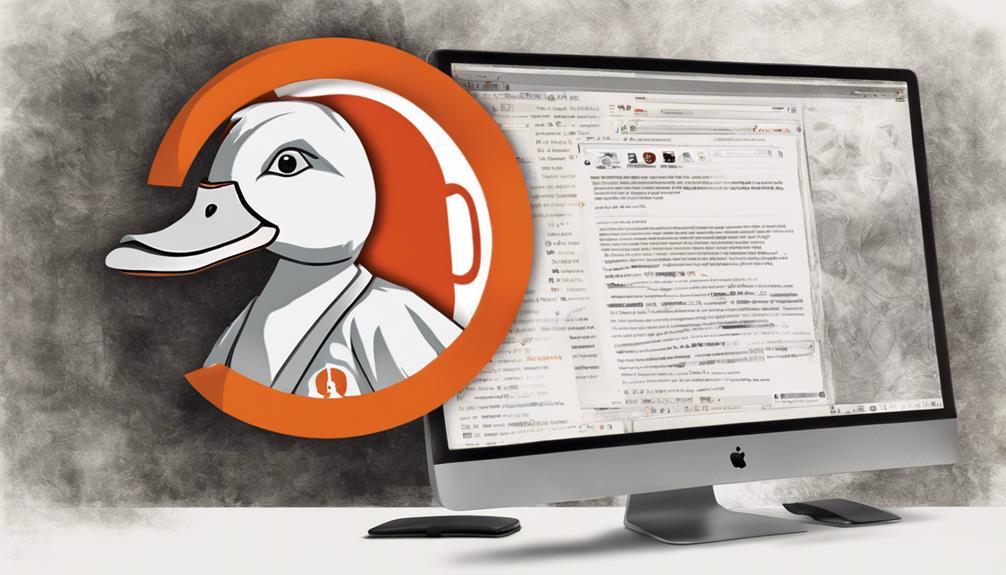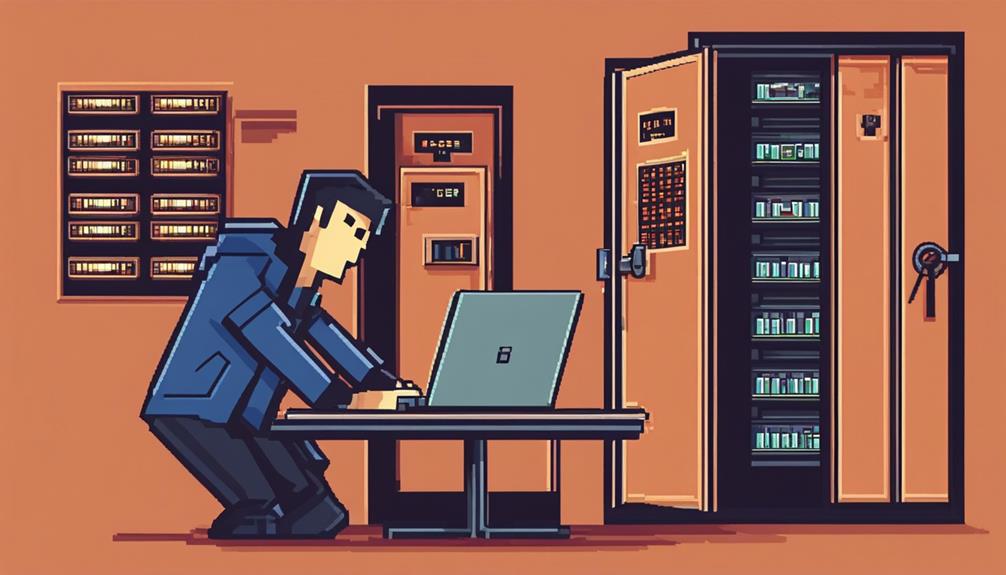To stay safe from hackers online, follow these expert tips: Create strong, unique passwords and update them regularly. Enable multi-factor authentication for added security layers. Be cautious of phishing emails and verify sources before clicking links. Keep your software updated to patch vulnerabilities. Use VPNs on public Wi-Fi for encryption. Secure your Wi-Fi network with WPA2 encryption and regular router updates. Utilize encryption protocols like SSL and TLS. Protect social media with privacy settings and backup data frequently. Educate yourself on cybersecurity practices and enable two-factor authentication. Implement these practices to safeguard your online presence.
Key Takeaways
- Use strong, unique passwords and enable multi-factor authentication.
- Update software regularly and avoid public Wi-Fi for sensitive tasks.
- Educate yourself on phishing scams and stay informed about security threats.
- Implement VPNs for encrypted internet connections and secure Wi-Fi networks.
- Backup data regularly, adjust social media privacy settings, and conduct cybersecurity training.
Strong Passwords
To improve your online security, it is vital to create strong passwords that are difficult for hackers to crack. When setting up passwords, make sure they are complex, comprising a combination of letters, numbers, and special characters. Avoid using easily guessable information like birthdays or names, as these make your passwords vulnerable to hacking attempts.
It is recommended to use a password manager to securely store and manage all your unique passwords for different accounts, reducing the risk of unauthorized access.
Regularly updating your passwords is essential for maintaining security. Changing passwords periodically and immediately if you suspect any compromise can help prevent unauthorized access to your accounts.
Multi-Factor Authentication
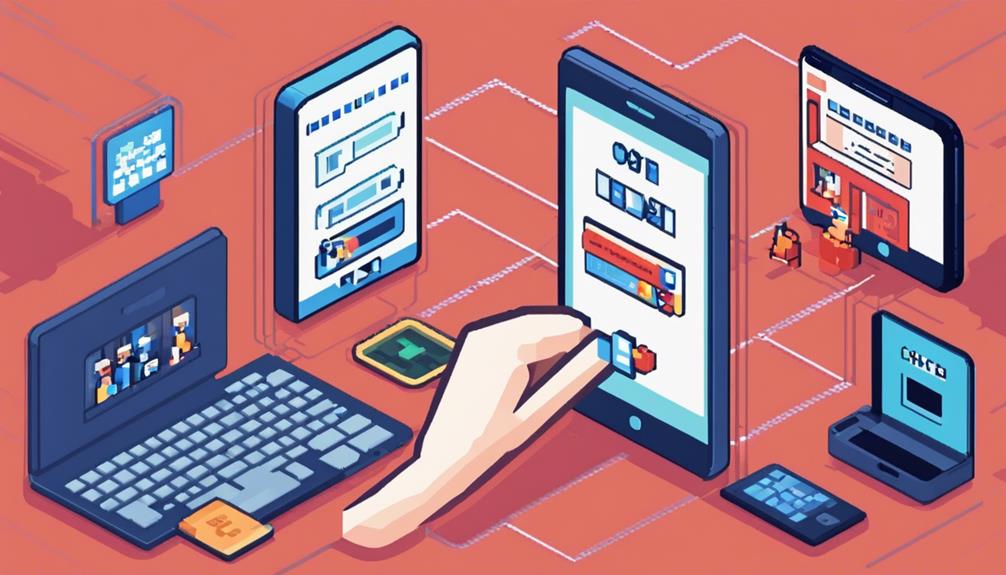
Utilizing multi-factor authentication enhances online security by requiring additional forms of verification beyond just passwords. This extra layer of security helps protect against unauthorized access, even if your password is compromised. Common methods of multi-factor authentication include entering a code sent to your phone or using biometric data like fingerprints.
Many online services and platforms offer multi-factor authentication as an option for users to enable. By implementing multi-factor authentication, the risk of unauthorized account access can be greatly reduced. This means that even if a hacker manages to obtain your password, they would still need the additional verification to gain access to your account.
It is a proactive measure that individuals can take to enhance their online security and protect their personal information from cyber threats. Remember, the more barriers hackers face, the harder it becomes for them to breach your accounts.
Phishing Awareness

Phishing awareness is vital in protecting yourself from online scams. By learning to spot phishing emails and practicing secure password habits, you can greatly reduce your risk of falling victim to cybercriminals.
Stay vigilant, verify email sources, and avoid clicking on suspicious links to safeguard your personal information online.
Spotting Phishing Emails
Identifying fraudulent emails, particularly those designed to steal personal information, is essential for maintaining online security. To spot phishing emails effectively, consider the following:
- Urgent Requests: Be cautious of emails requesting immediate action or personal information, such as passwords or financial details, as this is a common tactic used by phishing scammers.
- Spelling and Grammar: Watch out for spelling and grammar errors in emails, as these mistakes are often present in phishing attempts and can help you identify fraudulent messages.
- Avoid Clicking Links: Refrain from clicking on any links embedded in suspicious emails, as they may direct you to malicious websites that aim to steal your information once clicked.
- Verify Legitimacy: If you receive an email from a financial institution or other sensitive organization, verify its authenticity by contacting them directly through official channels before providing any personal data.
Secure Password Practices
When safeguarding against phishing attacks, implementing secure password practices is essential for enhancing online security. Using unique and complex passwords is vital to prevent falling victim to phishing scams. Phishing emails often impersonate trusted sources to deceive individuals into revealing their login credentials. It is important to be cautious of emails that request sensitive information or demand urgent actions to avoid falling into these traps.
To help you create strong passwords, consider the following tips:
| Secure Password Practices | Description |
|---|---|
| Use unique passwords | Avoid using the same password for multiple accounts. |
| Create complex passwords | Include a mix of letters, numbers, and special characters. |
| Regularly update passwords | Change passwords periodically to enhance security. |
| Enable two-factor authentication | Add an extra layer of protection to your accounts. |
Software Updates

Regularly updating your software is essential for protecting your devices from cyber threats.
Software updates often include patches that fix vulnerabilities and enhance security measures.
Neglecting to update your software can leave your devices at risk of malware and unauthorized access.
Timely Software Updates
Maintaining up-to-date software is essential for safeguarding against potential cyber threats and vulnerabilities. Timely software updates play a vital role in enhancing online security. Here are some key points to keep in mind:
- Patch Vulnerabilities:
Software updates often contain patches that fix known security vulnerabilities. By staying current with updates, you can protect your system from potential exploits by cybercriminals.
- Prevent Malware:
Outdated software is more susceptible to malware attacks. Regular updates help in closing security gaps that can be exploited by malicious software, reducing the risk of infections.
- Enhance Data Protection:
Vulnerable software can serve as an entry point for hackers to access your system and compromise sensitive data. Updating software regularly strengthens the defense mechanisms against unauthorized access.
- Optimize Security Settings:
Keeping security settings up to date ensures that your software is configured to provide maximum protection against online threats. Regular updates help in maintaining the effectiveness of security protocols.
Importance of Patches
Updating software patches is imperative for fortifying your online defenses against potential cyber threats. Regularly applying software patches is vital as they address security vulnerabilities that hackers can exploit.
Outdated software is a common entry point for cyber attacks, underscoring the importance of timely patching for online safety. By patching software promptly, you can greatly reduce the risk of malware infections and unauthorized access to sensitive information.
Ignoring software updates raises the likelihood of falling victim to cyber attacks that specifically target known vulnerabilities. It's crucial to recognize that software updates not only boost performance but also enhance the security posture of devices against evolving threats.
Therefore, staying vigilant about installing software patches is a proactive measure in safeguarding your digital assets and ensuring a more secure online experience.
Vulnerabilities and Risks
Adhering to a stringent software update regimen is imperative to mitigate vulnerabilities and risks associated with potential cyber threats. Regular software updates play a vital role in patching vulnerabilities and preventing cyber attacks.
Here are key points to keep in mind regarding software updates:
- Preventing Malware: Outdated software increases the risk of malware installation, which can lead to unauthorized access and data breaches.
- Enhancing Security: Vulnerable software poses significant security risks, potentially compromising sensitive information and leaving systems open to exploitation.
- Protecting Against Cyber Threats: Keeping security settings up to date is essential for safeguarding systems against evolving cyber threats.
- Key Practice in Vulnerability Management: Patching and updating software regularly is a fundamental aspect of vulnerability management, strengthening overall security posture and reducing the likelihood of successful cyber attacks.
VPN Usage
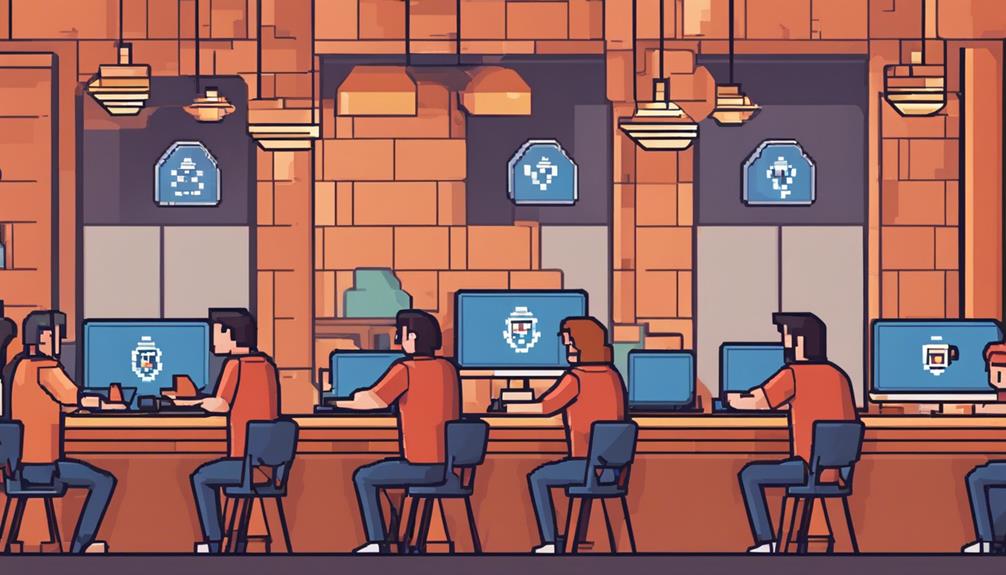
Using a VPN is an essential step in protecting your online activities and information from potential cyber threats and hackers.
VPNs encrypt your internet connection, ensuring that your data remains secure and inaccessible to malicious actors.
Additionally, a VPN masks your IP address, making it challenging for hackers to track your online movements and gather personal information.
When connected to public Wi-Fi networks, using a VPN adds an extra layer of security, reducing the risk of cyber attacks that may compromise your sensitive data.
Secure Wi-Fi Networks

To safeguard your Wi-Fi network effectively, it is essential to use a strong password with WPA2 encryption, regularly update your router's firmware, and enable network encryption protocols. These measures help prevent unauthorized access and protect your devices from cyber threats on the network.
Additionally, disabling remote management and implementing MAC address filtering can further enhance the security of your Wi-Fi network.
Strong Password Protection
Enhancing the security of your Wi-Fi network involves implementing robust password protection measures to safeguard against unauthorized access by hackers. Here are some key steps to guarantee strong password protection:
- Create Complex Passwords:
Use a combination of uppercase and lowercase letters, numbers, and special characters to make your Wi-Fi password harder to crack.
- Avoid Default Passwords:
Change the default password provided by your router manufacturer as these are often easily guessable by hackers.
- Use Unique Passwords:
Avoid using the same password for multiple accounts to prevent a breach in one account leading to access to others.
- Regularly Update Passwords:
Change your Wi-Fi password periodically to minimize the risk of unauthorized access, especially if you suspect a security breach.
Enable Encryption Protocols
Implementing robust encryption protocols like WPA2 or WPA3 on your Wi-Fi network is vital for ensuring secure data transmission and protecting against unauthorized access by hackers. Encryption protocols play a pivotal role in safeguarding sensitive information by scrambling data to prevent cyber threats.
SSL and TLS are examples of encryption protocols that provide secure communication over the internet, enhancing online security. It is imperative to avoid connecting to unsecured Wi-Fi networks as they pose a risk of data interception by hackers.
By securing your Wi-Fi network with encryption protocols, you establish a barrier that deters unauthorized access and protects your data from potential breaches. The use of encryption protocols not only safeguards your online activities but also ensures that your personal information remains confidential and secure from malicious intent.
Prioritizing the implementation of encryption protocols on your Wi-Fi network is a fundamental step towards fortifying your online security.
Regular Router Updates
Securing your Wi-Fi network starts with regularly updating your router firmware to prevent cyber attacks and safeguard your data. Keeping your router software up to date is vital in maintaining a secure network environment. Here are some key reasons why regular router updates are essential:
- Patch Security Vulnerabilities:
Updating your router firmware can help patch known security vulnerabilities that hackers could exploit to infiltrate your network.
- Prevent Cyber Attacks:
Outdated router software makes your network more susceptible to cyber attacks, highlighting the importance of timely updates for enhanced protection.
- Enhance Network Defenses:
Router updates often include security enhancements and bug fixes that strengthen your network defenses against evolving cyber threats.
- Automatic Updates:
Setting up automatic updates for your router firmware ensures that you receive the latest security patches without manual intervention, providing continuous protection for your Wi-Fi network.
Social Media Privacy Settings

Establishing strong social media privacy settings is vital for safeguarding your personal information and controlling who can access your profile and posts. When it comes to online security, protecting your social media accounts is as important as safeguarding your online banking information.
By adjusting your privacy settings, you can limit the visibility of your profile and posts to only trusted friends, reducing the risk of unauthorized access to your personal information. It is advisable to avoid sharing sensitive details such as your birthdate or address on these platforms to prevent potential identity theft or phishing attempts.
Regularly reviewing and updating your social media privacy settings is key to maintaining a secure online presence. Monitoring your profile changes and activity log can help you detect any suspicious activities or unauthorized logins promptly.
Regular Backups
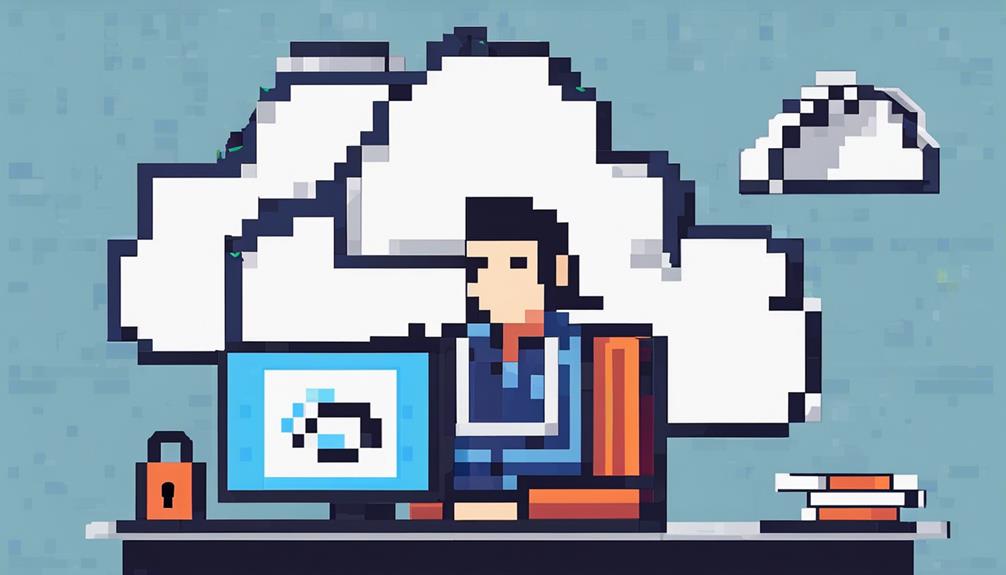
To further fortify your online security measures beyond social media privacy settings, ensuring regular backups of your data is imperative in safeguarding against potential cyber threats.
Here are some key points to take into account when backing up your data:
- Data Protection: Regularly backing up your data guarantees that you have a copy in case of a cyber attack or data loss.
- Storage Options: Contemplate backing up data to cloud storage or external hard drives for additional protection against data loss.
- Testing Backups: Periodically examining data backups ensures that they are functioning properly and can be relied upon when needed.
- Ransomware Defense: In the event of a ransomware attack, having backups can help avoid paying the ransom and recover data independently.
Cybersecurity Training

Participating in cybersecurity training equips individuals and organizations with essential knowledge and skills to mitigate common cyber threats effectively. These training sessions are designed to educate participants on various aspects of online security, including password management, recognizing phishing attempts, and the importance of software updates.
By engaging in cybersecurity training, individuals learn how to identify and avoid clicking on suspicious links in emails, as well as how to report cybersecurity incidents promptly.
Moreover, cybersecurity training emphasizes the importance of conducting regular security audits, implementing data backups, and keeping software up to date to enhance overall protection against cyber threats. By instilling these best practices, training programs play a crucial role in reducing the risk of falling victim to cyber attacks and data breaches.
Ultimately, the knowledge and skills gained through cybersecurity training empower individuals and organizations to navigate the digital landscape securely and safeguard sensitive information from potential threats.
Two-Factor Authentication

How does two-factor authentication enhance online account security?
Two-factor authentication adds an extra layer of protection by requiring two forms of identification to access an account, making it notably harder for unauthorized users to breach security measures.
Here are some key points to keep in mind:
- Increased Security: By combining something you know (like a password) with something you have (such as a code sent to your phone), two-factor authentication makes it more challenging for hackers to gain access to your accounts.
- Various Methods: Common methods of two-factor authentication include receiving a code via SMS, using an authentication app like Google Authenticator, or biometric verification like fingerprint scanning.
- Risk Reduction: Even if your password is compromised, two-factor authentication can still prevent unauthorized access, enhancing the overall security of your accounts.
- Widespread Adoption: It is recommended to enable two-factor authentication wherever possible, as many online services and platforms now offer this feature as a standard security measure.
Frequently Asked Questions
What Are 3 Ways You Can Ensure Your Safety if You Get Hacked?
In the event of a hacking incident, taking immediate action is essential. Change compromised passwords, contact cybersecurity experts for assessment, and enable two-factor authentication to enhance security. These steps, along with regular data backups and ongoing education, can help safeguard against future hacks.
What Are the 6 Tips of Cyber Security Awareness?
Cyber security awareness encompasses recognizing phishing attempts, verifying requests, regular software updates, dark web monitoring, password security, and consulting cybersecurity experts. These six tips are essential in safeguarding against online hackers and enhancing overall digital security.
What Are 5 Ways You Can Avoid Being Hacked?
Employing a multifaceted approach to digital security is paramount. Utilize intricate passwords, enable two-factor authentication, exercise caution with emails, keep software updated, and consider a VPN on public networks. These strategies fortify defenses against cyber threats.
What Are the 10 Recommended Tips for Cyber Security?
To enhance cyber security, implement strong, unique passwords, enable two-factor authentication, update software regularly, avoid phishing emails, use VPNs on public Wi-Fi, secure your home network, employ firewalls, encrypt sensitive data, back up regularly, and educate yourself on emerging threats.
Conclusion
To sum up, safeguarding yourself from hackers online is essential in today's digital age. By following expert tips such as using strong passwords, enabling multi-factor authentication, staying vigilant against phishing attempts, and keeping software updated, you can greatly reduce the risk of falling victim to cyber attacks.
Utilizing VPNs, adjusting social media privacy settings, regularly backing up data, undergoing cybersecurity training, and implementing two-factor authentication are also crucial steps in enhancing your online security.
Stay safe and secure online by taking these simple yet effective precautions.



